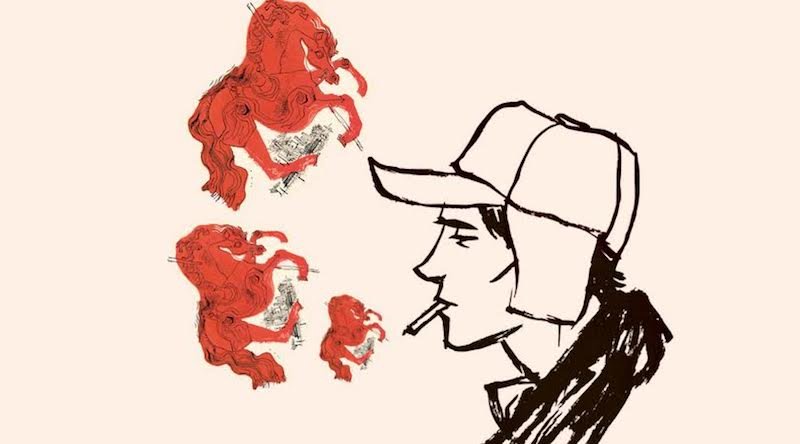The Catcher in the Rye: A Exploration of Teenage Angst
Holden
Chapter 1 Exploring the Story of The Catcher in the Rye
The Catcher in the Rye, written by J.D. Salinger and published in 1951, is a novel that follows the journey of Holden Caulfield, a teenage boy who has been expelled from his prep school, as he navigates through life and tries to find meaning in the world around him. The novel's title is inspired by Holden's desire to protect innocent children from the harsh realities of adulthood, a role he envisions for himself as a "catcher in the rye."
Holden is a complex character who struggles with feelings of alienation and disconnection from society, which makes it difficult for him to form meaningful relationships. Throughout the novel, we see Holden grappling with themes such as identity, innocence, isolation, and the loss of childhood.
The novel is structured as a series of interconnected episodes, taking place over a few days in New York City. As Holden wanders around the city, he encounters a variety of characters, each with their unique quirks and flaws. However, despite the novel's humorous and lighthearted tone, it ultimately ends on a melancholic note, as Holden realizes that he cannot protect the children he so admires from the harsh realities of the world.
Chapter 2: The reason for our admiration towards The Catcher in the Rye
Despite being over 60 years old, The Catcher in the Rye remains a beloved classic among readers of all ages. Its enduring popularity can be attributed to several factors:
1. Relatable protagonist
Holden Caulfield is an incredibly relatable character, especially for teenagers struggling with feelings of isolation and disillusionment. His cynicism towards society and his desire to protect the innocent are universal themes that resonate with readers of all ages.
2. Timeless themes
The novel deals with timeless themes such as identity, innocence, and the loss of childhood, which are just as relevant today as they were when the book was first published.
3. Engaging writing style
Salinger's writing style is witty, engaging, and full of humor. The novel is a joy to read, even despite its often heavy subject matter.
4. Insightful commentary on society
The Catcher in the Rye offers a poignant critique of society's values and norms, particularly those related to education and conformity. Holden's disdain for "phony" people and institutions has struck a chord with readers across generations.
Chapter 3: Quotes from The Catcher in the Rye
1. "Amomg other things, you’ll find that you're not the first person who was ever confused and frightened and even sickened by human behavior."
This quote, spoken by Holden Caulfield, highlights his feelings of alienation from those around him. He feels like he is the only one who sees the world for what it truly is, and that everyone else is putting on a façade.
2. "It's funny. All you have to do is say something nobody understands and they'll do practically anything you want them to."
Holden makes this observation as he reflects on how people often blindly follow those who appear to be more intelligent or knowledgeable than themselves. It speaks to the power of language and how it can be used to manipulate others.
3. "Don't ever tell anybody anything. If you do, you start missing everybody."
This quote speaks to the idea that vulnerability can lead to emotional pain. Holden is afraid of opening up to others because he doesn't want to feel the pain of loss if they leave him.
4. "People never believe you."
Holden says this after multiple instances where he tries to tell the truth but is met with disbelief. It speaks to the idea that people are often skeptical of things that don't fit into their worldview, and that honesty can sometimes be an uphill battle.
5. "I'm quite illiterate, but I read a lot."
This quote speaks to the power of reading and how it can broaden one's horizons even if they haven't had access to formal education. It also highlights Holden's self-deprecating sense of humor.
6. "I'd rather have somebody with a bit of character take care of my baseball glove."
This quote relates to Holden's obsession with authenticity and genuine human connection. He values people who are true to themselves over those who are superficial or fake.
7. "The best thing, though, in that museum was that everything always stayed right where it was."
Holden makes this observation as he reflects on the Museum of Natural History. It speaks to his desire for stability and his fear of change.
8. "People always clap for the wrong reasons."
This quote reflects Holden's frustration with society and how it often values surface-level achievements over meaningful ones. It also speaks to his desire for people to be more discerning and critical.
9. "The mark of the immature man is that he wants to die nobly for a cause, while the mark of the mature man is that he wants to live humbly for one."
This quote speaks to the idea of maturity and how it relates to one's motivations in life. The immature person seeks glory and recognition through sacrifice, while the mature person seeks to make a positive impact on the world through their everyday actions.
10. "I'm standing on the edge of some crazy cliff. What I have to do, I have to catch everybody if they start to go over the cliff - I mean if they’re running and they don’t look where they’re going I have to come out from somewhere and catch them. That’s all I’d do all day. I’d just be the catcher in the rye and all."
This quote speaks to Holden's desire to protect others from harm. He sees himself as a "catcher in the rye" who can prevent people from falling off the metaphorical cliff of adulthood and losing their innocence.





